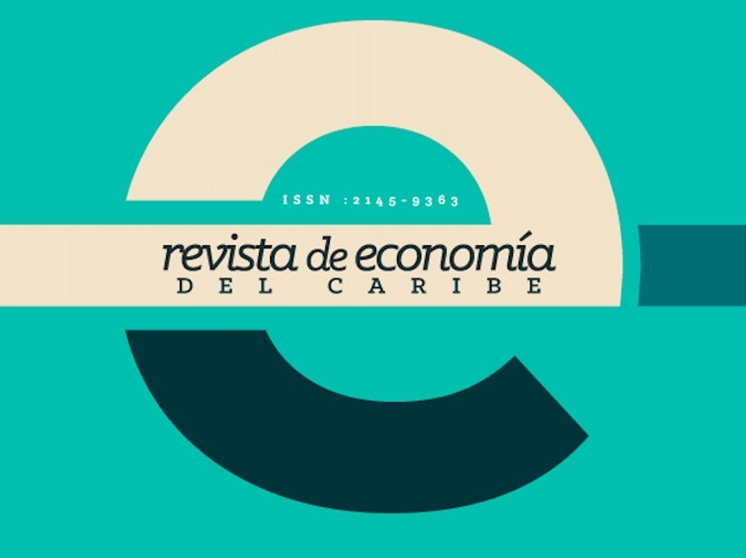Exportações de lagosta do ceará: uma abordagem por vetores autorregressivos – VAR
Palavras-chave:
Exportações, Ceará, pescado, lagostasResumo
O consumo de proteína animal tem crescido mundialmente com o avanço da globalização no comércio, sendo sensível a variações na taxa de câmbio e nos preços dos produtos domésticos. O Brasil se destaca como um dos maiores exportadores mundiais de commodities proteicas, e o Ceará é um dos maiores exportadores de pescado do país. Portanto, este estudo tem como objetivo analisar como as variações na taxa de câmbio e nos preços da lagosta afetam o volume de lagosta exportado pelo Estado do Ceará (o maior exportador de lagosta do país). O período selecionado abrange de 2002 a 2022, e a análise será realizada utilizando a abordagem de Vetores Autorregressivos (VAR). Os resultados mostram que não há uma relação de longo prazo entre as variáveis e que a dinâmica das exportações de lagosta do Ceará pode ser explicada muito mais por fatores inerentes e subjetivos à oferta e demanda do produto do que por variáveis macroeconômicas comumente utilizadas em estudos dessa natureza.
Referências
Aidar, G. L., & Deus, L. N. (2019). O desempenho das exportações brasileiras na perspectiva dos seus principais parceiros comerciais: Uma análise pelo método de Vetores Auto-Regressivos (VAR). Economia e Desenvolvimento, 31(6).
Akaike, H. (1974). A new look at the statistical model identification. IEEE Transactions on Automatic Control, 19(6), 716-723. https://doi.org/10.1109/TAC.1974.1100705
Castro, M. A. R., Santos, M. C., & Lima, E. J. A. (2018). Causalidade entre petróleo, câmbio e commodities energéticas: Abordagem com Vetores Auto-Regressivos (VAR). Revista de Gestão, Finanças e Contabilidade, 8(3), 38-57. https://doi.org/10.29393/rgfc8-3asmg40002
De Souza, M. O. (2018). Determinantes da disponibilidade interna, do processamento doméstico e da oferta de exportação brasileira de soja em grãos. Tese (Doutorado em Ciências) - Escola Superior de Agricultura "Luiz de Queiroz, Universidade de São Paulo, Piracicaba.
Engle, R. F., & Granger, C. W. J. (1987). Co-integration and error correction: Representation, estimation, and testing. Econometrica, 55(2), 251-276. https://doi.org/10.2307/1913236
Farias, A. C. da S., & Farias, R. B. A. (2018). Desempenho comparativo entre países exportadores de pescado no comércio internacional: Brasil eficiente? Revista de Economia e Sociologia Rural, 56(4), 451-466. https://doi.org/10.1590/1234-56781890-5678resr2018560403
Felipe, I. J. dos S. (2013). Análise de volatilidade, integração de preços e previsibilidade para o mercado brasileiro de camarão (Dissertação de mestrado). Universidade Federal do Rio Grande do Norte.
Fernandez, A. F. de A. (2020). Impactos da taxa de câmbio, preços das commodities e renda mundial sobre as exportações do agronegócio brasileiro entre 1997 e 2018 (Tese de doutorado). Universidade de São Paulo.
Granger, C. W. J. (1969). Investigating causal relations by econometric models and cross-spectral methods. Econometrica, 37(3), 424-438. https://doi.org/10.2307/1912791
Hannan, E. J., & Quinn, B. G. (1979). The determination of the order of an autoregression. Journal of the Royal Statistical Society: Series B (Methodological), 41(2), 190-195. https://doi.org/10.1111/j.2517-6161.1979.tb01072.x
Hernández-Rodríguez, A., Agüero, M., Gallegos, R., & Ibarra, A. (2001). Aquaculture development trends in Latin America and the Caribbean. In R. Subasinghe, P. B. Bueno, M. J. Phillips, C. Hough, S. E. McGladdery, & J. R. Arthur (Eds.), Aquaculture in the Third Millennium (pp. 317-340). Food and Agriculture Organization of the United Nations (FAO).
Johansen, S. (1988). Statistical analysis of cointegration vectors. Journal of Economic Dynamics and Control, 12(2-3), 231-254. https://doi.org/10.1016/0165-1889(88)90041-3
Ramos, A. R. A., Gomes, R. C., & Câmara, M. H. (2023). Insustentabilidade da pesca da lagosta no estado do Ceará. Contribuciones a las Ciencias Sociales, 16(8), 8748-8768.
Rodrigues, L. S., Santos, M. C., & Pereira, R. M. (2012). Panorama da aquicultura no Brasil: Desafios e oportunidades. BNDES Setorial, 35, 421-463.
Schwarz, G. (1978). Estimating the dimension of a model. The Annals of Statistics, 6(2), 461-464. https://doi.org/10.1214/aos/1176344136
Sibin, B. H., da Silva Filho, L. A., & Ballini, R. (2016). Financiamento habitacional e seus impactos sobre os preços na construção civil brasileira. Revista Espacios, 37(20). https://doi.org/10.48082/espacios-año2016-vol37-n20
Sims, C. A. (1980). Macroeconomics and reality. Econometrica, 48(1), 1-48. https://doi.org/10.2307/1912017
Subasinghe, R., Soto, D., & Jia, J. (2009). Global aquaculture and its role in sustainable development. Reviews in Aquaculture, 1(1), 2-9. https://doi.org/10.1111/j.1753-5131.2008.01002.x
Valdimarsson, G. (2003). International fish trade. In Expert Consultation on International Fish Trade and Food Security (Presentation). Food and Agriculture Organization of the United Nations.
Downloads
Publicado
Edição
Seção
Licença
I, ____________________________________________, author of the work and/ or article, adult, residing in the city of _________________, bearing the Identity Card/Passport n.° ______________________, issued in _______________________, in command of his/her/their physical and mental faculties, party hereinafter referred to as AUTHOR, signs the following authorization so the reproduction, publication, communication and distribution of the work can be done, under the following terms:
1. That, regardless of existing legal regulations due to the relationship of the parties to this contract, and any other existing legal presumption, the parties agree that the AUTHOR authorizes the Universidad del Norte, with the purpose of reproduce, publish, communicate and distribute the material called in the Revista de Economía del Caribe.
2. That such authorization apply to the copyright of the work, by any means, known or to be known, the public communication of the work, and the distribution of the work, directly or by third parties, purely educational purposes.
3. The AUTHOR undertakes to inform and declare the existence of this authorization and to preserve the right of the journal Revista de Economía del Caribe to the first publication of the work.
4. The AUTHOR states that the article is original and his/her/their exclusive creation, there being no impediment of any kind for the authorization he/she/they is/are giving, responding thereto by any action: claim, plagiarism or any other type of complaint that might arise about.
5. That such authorization is granted for free.
6. The moral rights of the author on the article correspond exclusively to the AUTHOR, in virtue of which, the Universidad del Norte agrees to expressly and rigorously recognize and respect them.





























